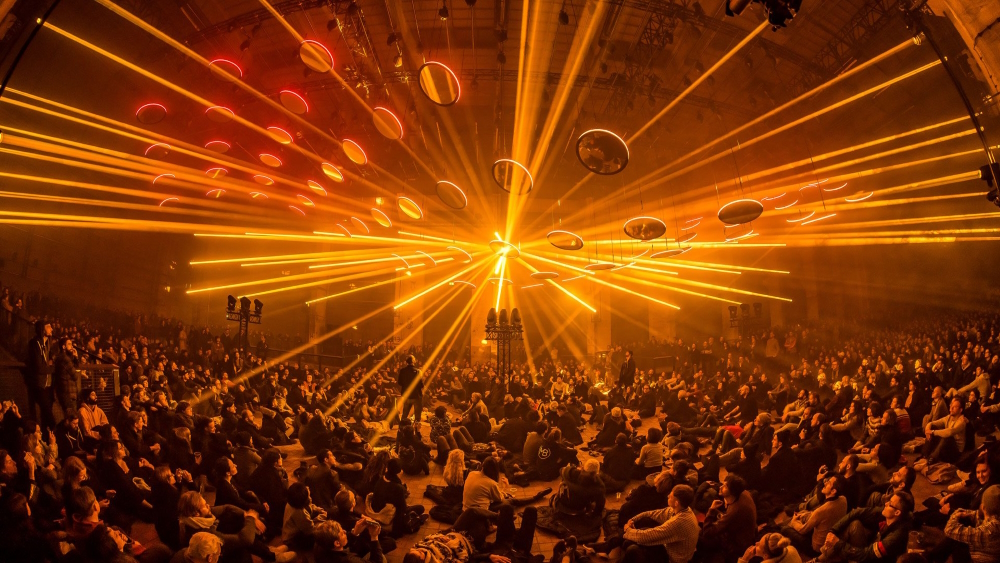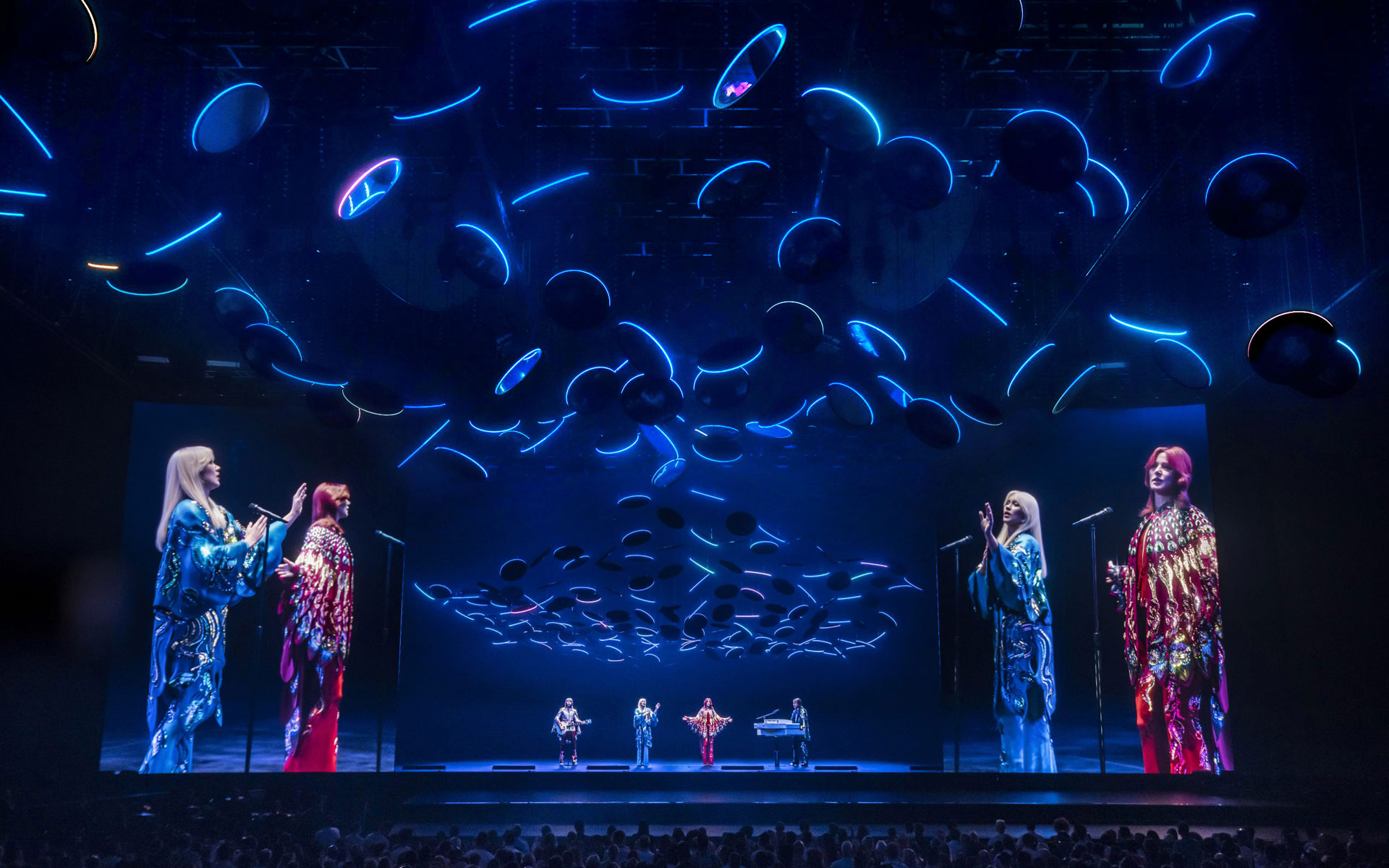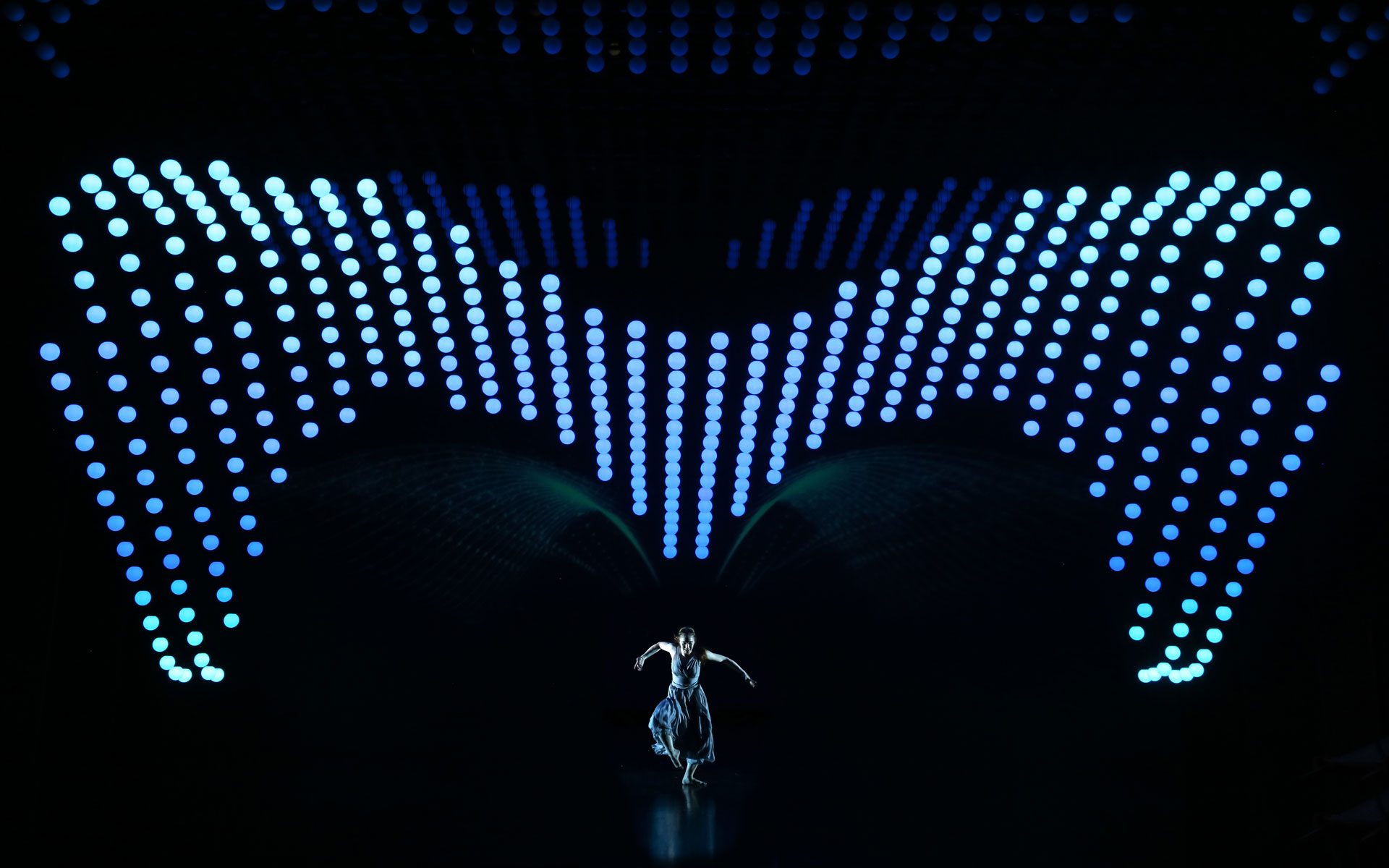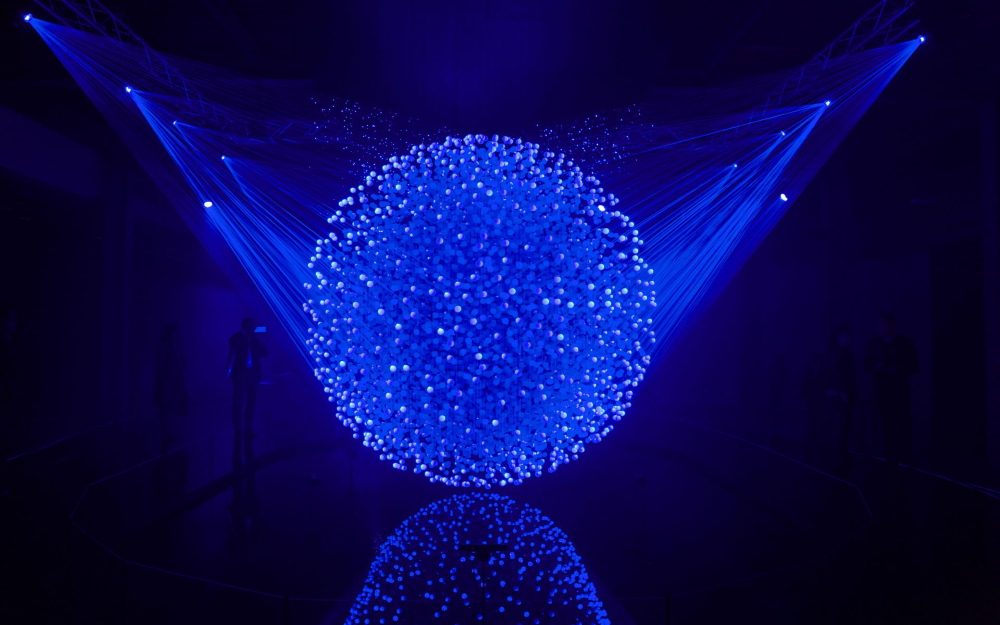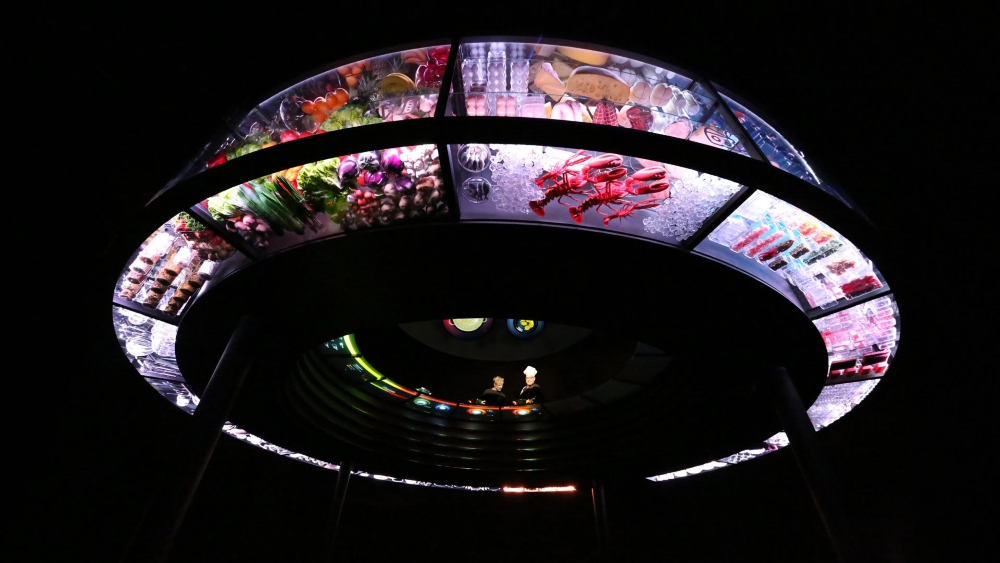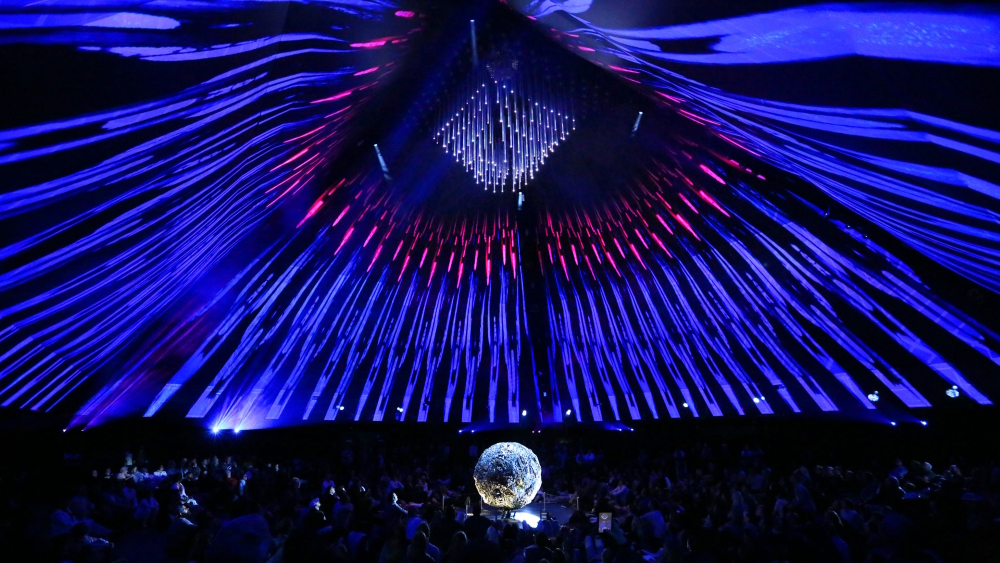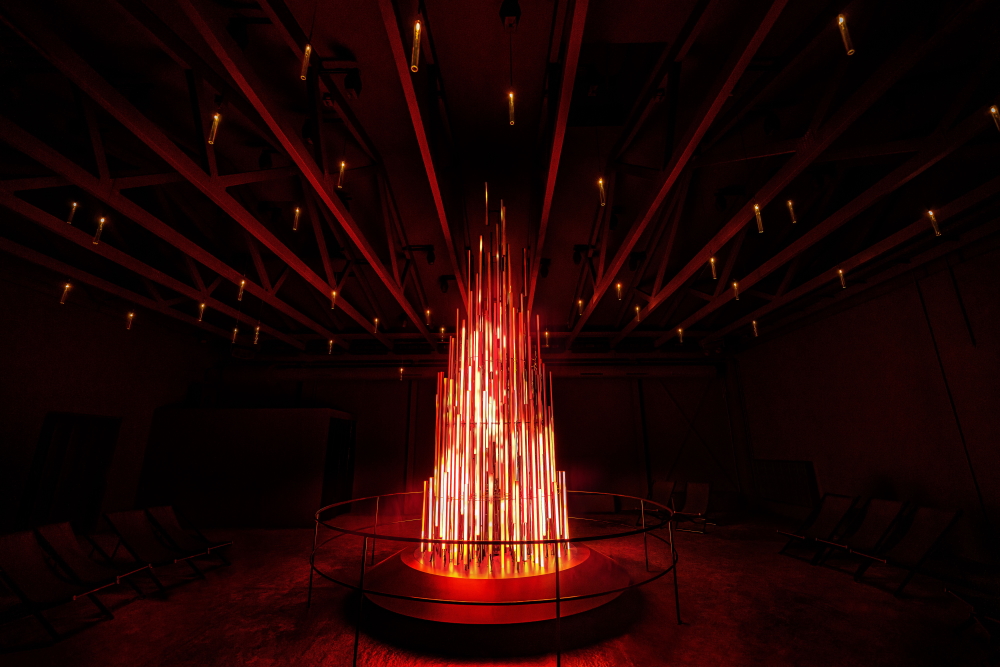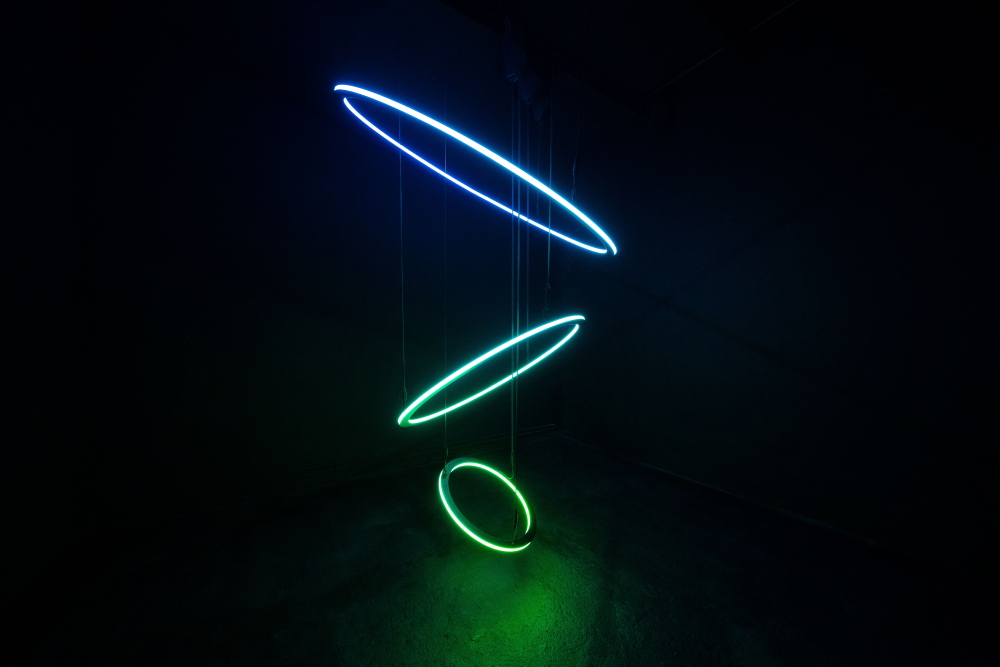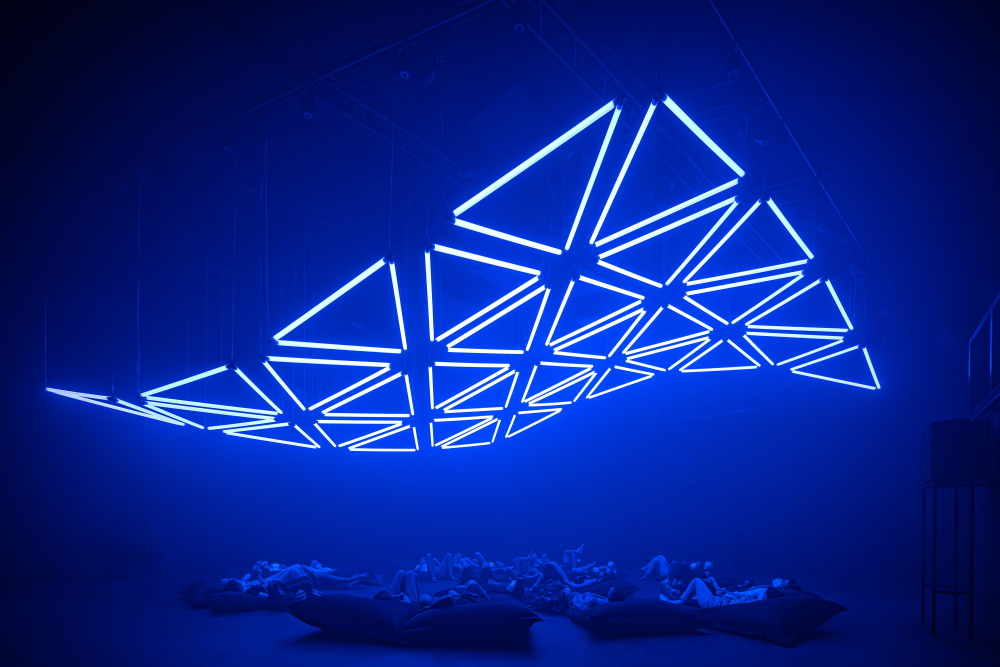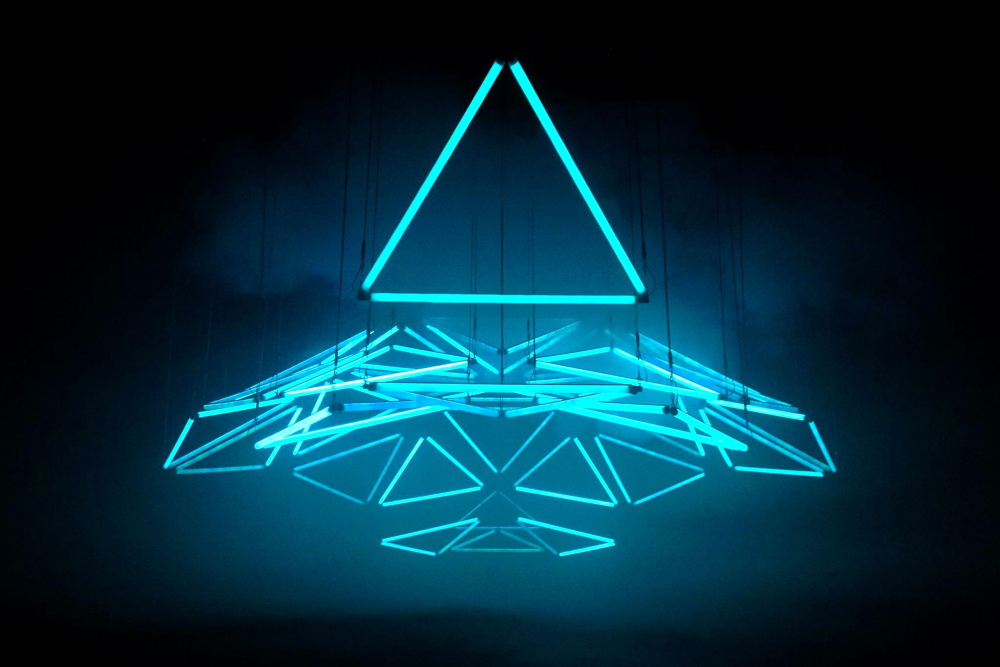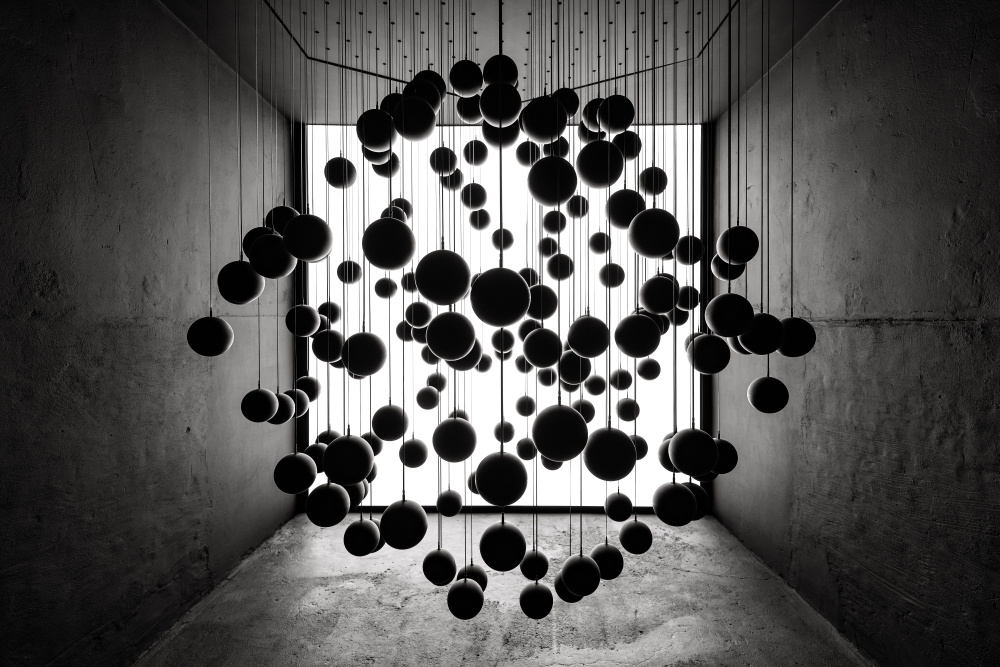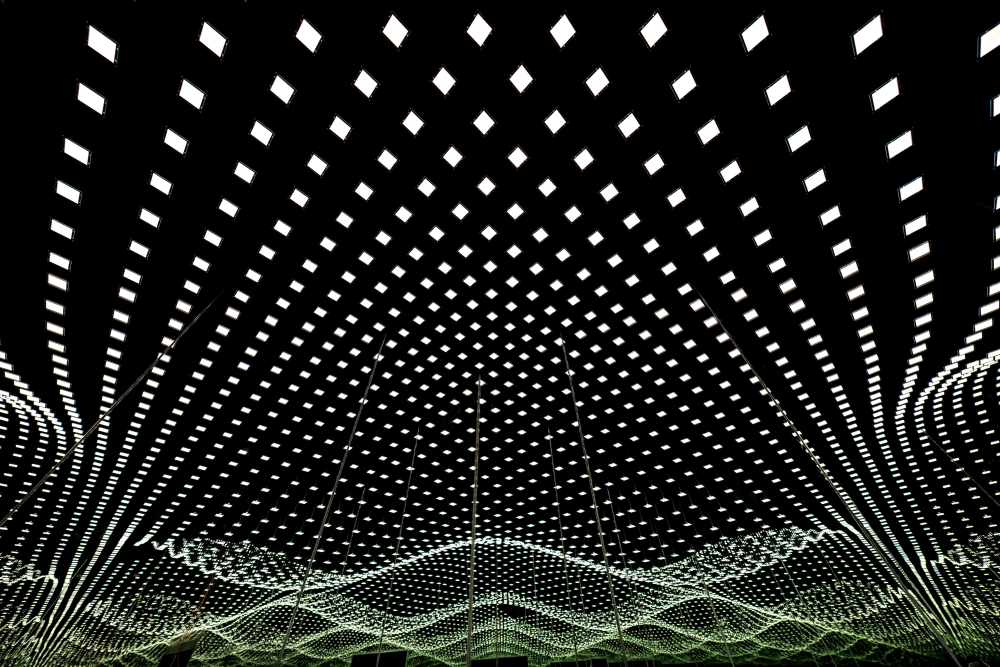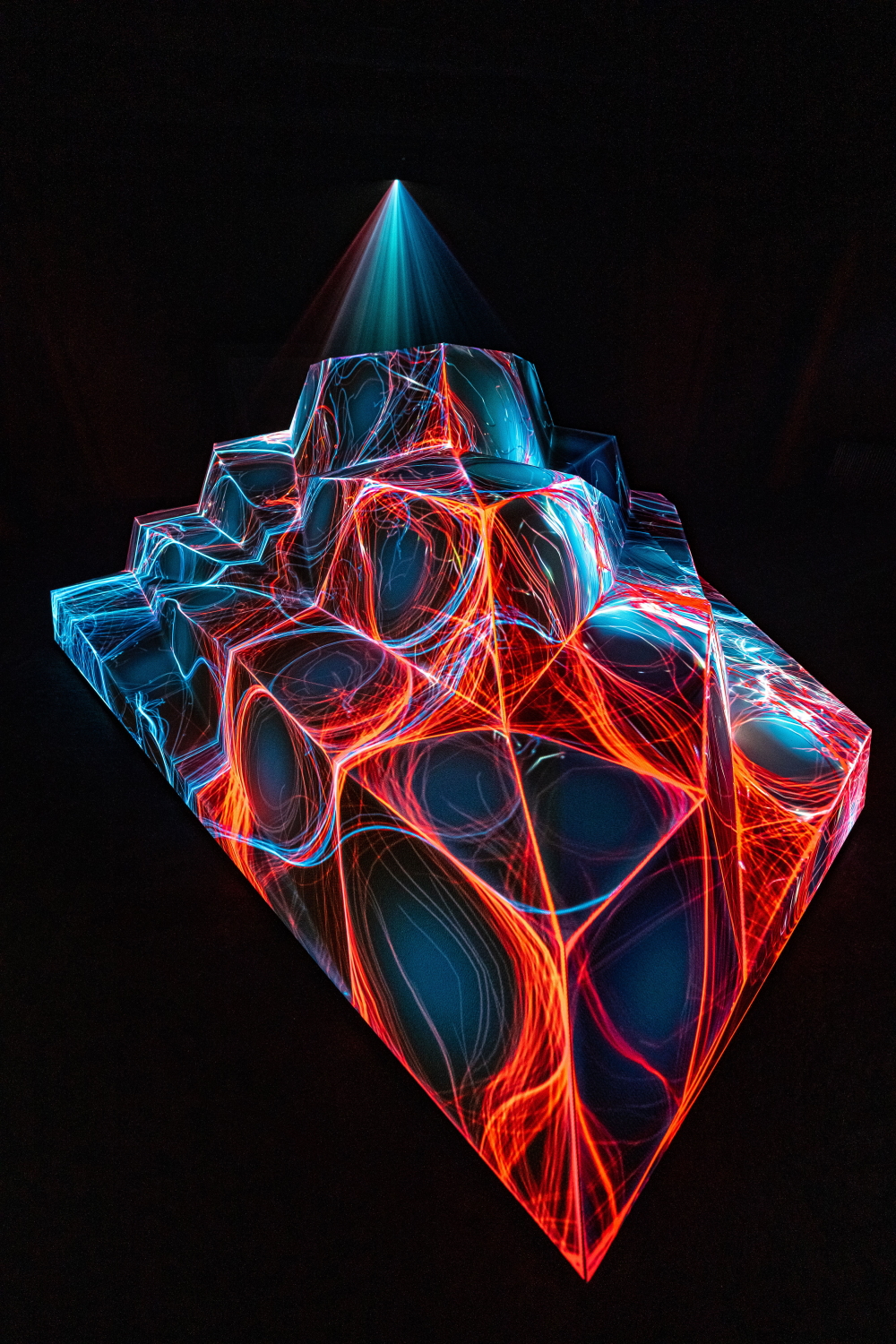Christopher Bauder
light artist / media designer / visionary / inventor
Germany
'ABBA Voyage' is a breathtaking concert-sensation making headlines wordwide and has already fascinated over one million visitors so far. It is described as „ground-breaking“ (Metro) and „jaw-dropping“ (The Guardian) because of its cutting-edge technology. A key role in this spectacular show with digital avatars as live-performers plays the largest and most complex permanent kinetic lighting installation in the world. It was designed, planned and programmed by Christopher Bauder’s company WHITEvoid in cooperation with his own innovative lighting technology manufacturer KINETIC LIGHTS. Beside his Berlin based multidisciplinary design and art studio the man leads DARK MATTER, „a multidimensional parallel world of light, space and sound“.
Christopher Bauder
light artist / media designer / visionary / inventor
Germany
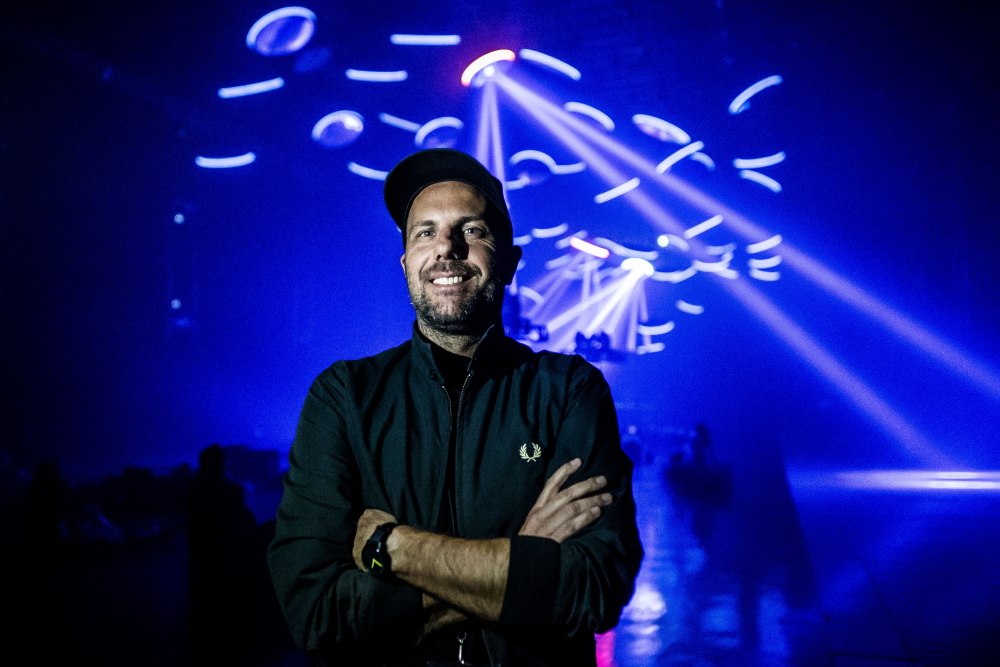
„The translation of bits and bytes into objects and environments and vice versa. Space, object, sound, light, and interaction are the key elements of his work“, notes Wikipedia about Christopher Bauder’s projects. He was born 1973 in Stuttgart and studied in the Digital Media Class at the Berlin University of Arts from 1998 up to 2003. In 2004 Mr. Bauder founded WHITEvoid „to extend his vision for the future where technology is fully integrated with the real world, and an art experience can be sensed at first hand beyond a digital screen in a physical space“ (homepage). He gathered a team of highly specialized architects, product designers, mechanical, electronic and software engineers. Although from diverse backgrounds, the team is strongly driven by technology, innovation, and experimentation, daring to think big and push the boundaries in complexity and beauty of each project. Clients include Amazon, Coca Cola, Dell, Facebook, Google, Huawei, Nike, Samsung and many more.
Christopher Bauder‘s projects were shown all around the world – from the Centre Pompidou in Paris as well as The National Museum of Fine Arts in Taiwan to MUTEK in Montreal and Mexico City or The Festival of Lights in Lyon – and have won numerous awards like Cannes Lions, Red Dot Design Award, ADC Award, DDC Award or the iF Design Award.
In 2021 Christopher Bauder founded DARK MATTER, „a parallel cosmos of expansive light installations where the boundaries between the real and the digital worlds become blurred. Within the pitch-black rooms of a converted factory in Berlin-Lichtenberg, the visitor of this constant chaging exhibition embarks on a journey through seven partly interactive works. Light, movement and sound fuse into emotional choreographies of luminous shapes and colors.“
Christopher Bauder lives and works in Berlin (Germany).
Interview January 2023
Total enlightment: from the „ABBA Voyage“-arena-spectacle to audio-visual art installations
INTUITION/IMAGINATION
How does intuition present itself to you – in form of a suspicious impression, a spontaneous visualisation or whatever - maybe in dreams?
Intuition comes spontaneously – as the name says: it’s very intuitive. I never plan for having an idea or working on a concrete moment to have inspiration or ideas. It comes unexpectedly – sometimes under the shower, which is most annoying, because I don’t have anything to write and I can just remember three ideas. Sometimes it comes during the programming or the creation of a show. Then I intuitively know what is the next step to take and what is the solution to be found. It comes in all kind of moments – watching a movie for example, talking to someone or reading a book. I mostly have very associative, kind of intuitive moments or thoughts by doing other things.
Will any ideas be written down immediately and archived?
When I have ideas and the possibility to write them down, I take notes on little papers or send myself e-mails. If the idea is visual then I make little scribbles. I have various small square papers and use a black felt pen. I make various small scribbles of the ideas, sketches, a couple of arrows and text to explain to myself when I see it later what I meant. That’s the first step normally.
?: How do you come up with good or extraordinary ideas?
It just happens by accident. Mostly when I have an idea that’s really good, I immediately know it. Sometimes it’s like a flash and an idea comes. To give an example: When I had the idea for my ‘Deep Web’-show - lasers connected with kinetics - I was in a very big space where I presented it later. I thought: the airspace is so empty, it should be filled with something. I immediately had this flash of idea to combine kinetics with lasers. It was a ten second phase and it took years to realize it.
?: Do you feel that new creative ideas come as a whole or do you get like a little seed of inspiration that evolves into something else and has to be realized by endless trials and errors in form of constant developments up until the final result?
Sometimes I have an idea and form a small part of the idea or an instant start of it. Then I think about it more over time, sometimes over days or weeks. In my head I formulate it already into a complete installation or a complete show. So all the little parts are there and I write it all down in one go.
Sometimes I have ideas for very complex technical inventions. The idea is very fast and very simple. I want the machine to fulfill X,Y, Z or whatever. I write it down, make a scribble, but it sometimes takes many, many years to realize that in the way that I had imagined it initially.
What if there is a deadline, but no intuition? Does the first fuel the latter maybe?
When I get the assignment or task I mostly create ideas immediately in my head already – with or without a deadline. Sometimes the topic doesn’t inspire me and I don’t have ideas immediately, but the deadline comes closer and it actually is counterproductive for having a good idea. When you are under pressure good ideas are not coming! Then it helps to distance oneself again and refresh yourself.
INSPIRATION
What inspires you and how do you stimulate this special form of imaginativeness?
I never actively try to stimulate creation or ideas, but a lot of things inspire me. I go to parties, concerts and I see something that actually reminds me or gives me an idea of something else. Or I watch a movie and see parts of a scene that look like something that could trigger an idea. Mostly it is a kind of cross pollination. I’m normally not getting inspired by the same thing that I’m trying to create. When I’m working on a show design I am not inspired by other shows. I’m always trying not to focus too much on the actual environment of that part. It’s more like things inspire totally different things.
?: How do you filter between ideas worthwhile pursuing and bad ones that you just let go of?
Like I’ve said before: I write down all my ideas, sort them and make scribbles. Then I have them sitting around for a while. When I revisit them after a couple of days or weeks and I still think this idea is good, then it’s mostly something worth continuing. If I feel then like 'Oh, that’s not really a good idea', then it is probaly not.
Has it to appeal to you primarily or is its commercial potential an essential factor?
It depends on the direction that I’m working in. I do a broad range of projects. Some of them are my personal art pieces. There it is very important that the idea inspires myself, is interesting me and worth continuing to work on. If I’m having ideas for something that’s a commercial application or something that could work for a client, then of course it is important that this creates an additional value.
Do you revisit old ideas or check what colleagues/competitors are up to at times?
I follow a lot of people and channels, read a lot of magazines. Automatically I know what’s going on in the scene. But I don't follow specific people for developments to be up-to-date and that I should follow that direction. I mostly then try to do the total opposite of that. I really don’t like to be contemporary, trendy or in the moment of things that are happening all around the world. I mostly check if someone is developing something in the same direction that I’m thinking. If I find something like that then I take a different direction!
CREATIVITY
Which time/place/environment suits your creative work process the best (tranquillity or pressure) and which path do you take from theory/idea to creation?
It always depends in what state of creation I am. For new, initial ideas and so forth it's always best to have a very laid back environment. Most ideas come to me when I’m on holidays or when I am relaxed, in the weekend or outside in nature. When I’m already in an actual project or in the creation process, the last moment where the pressure is really high and you don’t have much time to experiment, that also inspires me, gives me a new drive and new ideas. You have a flash of an idea, immediately realize it and then there’s the next and the next.
What is better in the realization process: speed and force creativity i.e. grasp the magic of the moment, or a slow, ripening process for implementation/elaboration?
It can be both. Sometimes it is really good to ripen the idea in my head. Like I said before: I have an initial idea and then I work it in my head as I have a very visual imagination. I can imagine the whole installation or the whole lightshow already before I actually start creating it. I’m kind of refining it in my head. Then sometimes when we are already in the process, then it is speed – idea, do it, check it if it’s good and continue with it, if it’s bad, discard it, do the next idea, experiment really fast for making really fast decisions. I’m really good at choosing really, really quick in the process.
?: Do you have any specific strategies you use when you are feeling stuck creatively?
I mostly do not have this problem. I always have an idea. Sometimes it is maybe not the greatest, but I have something. Then I would use that. When I feel stuck or too much in it, I do just something else and get out of it. Go out of it, have drink, meet someone, talk other things and take your mind off. My mind then automatically comes back to the original idea at some point when it’s ready. Then I continue to work on it and develop it.
How important are self-doubt and criticism (by others) during such a process i.e. is it better to be creative on your own, only trust your own instincts, or in a team?
The initial creation process I do that completely alone. I trust my own instinct. I always say that I’m very good in telling gold from lead. I immediately know what to pick, what’s good and what to continue with. I’m very intuitive in that and I trust my own intuition.
Should a creative always remain true to him-/herself including taking risks & going against the flow or must one, for reasons of (commercial) survival, make concessions to the demands of the market, the wishes of clients and the audience’s expectations?
I work on my own art and I do commercial projects for clients. If I work on my own art I take enormous risks and I do absolutely no compromises! I also don’t think about the audience! I try to make it as good as possible for myself, for my own liking! If the audience likes it on top too then that makes me happy, but I’m mainly doing it for myself. If it is a project for a client, it is applied. It’s mostly a design process. The client has a certain wish and direction respectively what they want to express. Then I try to imagine something that would fit with their message and within their interest - of course still keep a certain kind of integrity, because I represent the history of what I and my team have done before. So I try to push ideas in that I think are good and will help the message of the client. But of course the client needs to be happy with the result. So I adapt as much as possible or necessary to reach the common goal between the client and myself.
How is innovation still possible if one has established a distinctive style and, just in case, is it good to be ahead of one’s time even one hazards not being understood?
I realized a lot it is very hard when I’m pushing forward for new inventions or things that haven’t been done before! There are a lot of obstacles, people are not trusting that it is possible or it makes sense. You really have to push through that to reach the goal!
When does the time come to end the creative process, to be content and set the final result free - or is it work-in-progress with an endless possibility of improvement?
I just have read an article about that topic. It said that there are two kinds of artists: the ones that are doing a certain series of projects or art pieces; when they are finished with that, they switch to something completely different to keep themselves interested and occupied. Then there are other artists who take one topic at the very beginning, work it out in more and more detail for creating the ultimate ‘image’. I belong to the first kind of group of artists.
I know if something is good enough or finished enough and there’s almost nothing that I can add that would make it better. When I’m at that point I will never revisit it again and try to make it even better! I think that I know that it is complete enough to stand on its own. Then I move on to the next one for doing the same there!
?: In case of failure or - worse - a creativity crisis how do you get out of such a hole?
If you fail with something or you have a crisis or something doesn’t seem to be good enough after you have finished it, then I recommend the following: analyze it, work it through your mind and be content with accepting the fact that you have failed or it didn’t meet the expectation! Then you have to distance yourself from it and start fresh for doing something new!
SUCCESS
Should/can one resist the temptation to recycle a ‘formula’ one’s successful with?
It can be seen good or bad, if you have found a good formula and you are using it again. On one hand: if it is your signature and people are expecting something similar or in a certain direction from you… On the other hand: it can be redundant and be repetitive. So: just not repeat what you have done before, but add something on to your formula - develop it further or refine it! That’s what I try to do.
Is it desirable to create the ultimate/timeless work, but doesn’t “top of the ladder” bring up the question of “what’s next?” i.e. isn’t such a personal peak “the end”?
When I reach a certain peak in a certain area I switch to another area! I work in so many fields and areas. If I feel that I have pushed it as far as possible or as it makes sense, then I try to do something different. Otherwise you turn yourself around or your mind rotates around the same idea and you work on making it five or ten percent better. I prefer to start something new where I have bigger possibilities ahead to create something unique and something that hasn’t been done before!
MY FAVORITE WORK:
The work that sums up the best of all my other ones is “Skalar”. It is a show with kinetic mirrors and moving lights that I’m tracking with the mirrors. There I bend light and space, redirect light and use light as it’s like an architectural object. On the technical side it is very advanced and very unique - also in the way that I use it to create a one- hour show with a story that moves people. It’s not just a series of patterns and musical synchronisation, but it is really a journey to different emotional states. It leads you to feeling aggressive, happy or content. This piece with motion, light and music is a very good and successful combination of those elements.
